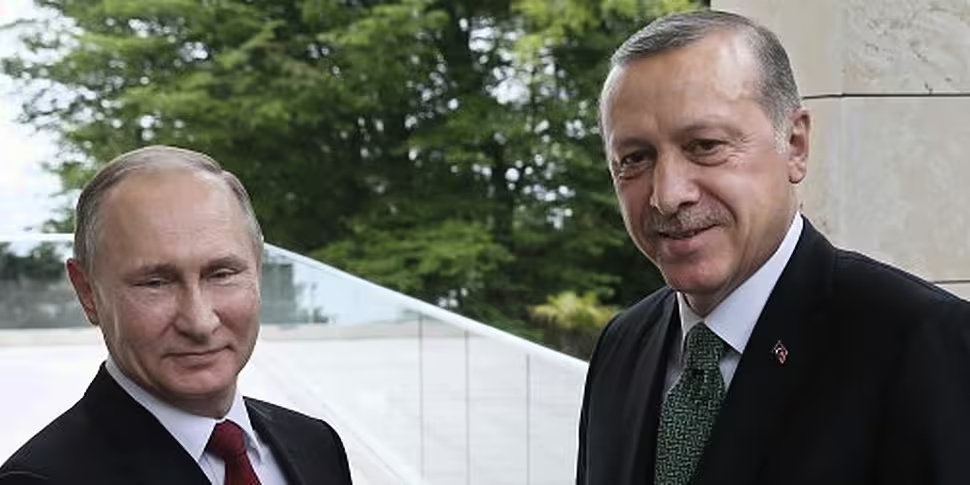A Russia-backed deal to set up "de-escalation zones" in mainly opposition-held areas of Syria has come into effect.
The agreement – supported by Turkey and Iran – is the first international attempt to reduce violence in the war-torn country that includes the implementation of armed foreign monitors on the ground.
The three countries are expected to police the four safe zones - although an official with Russia's military general staff said on Friday that other countries may eventually have a role to play.
The deal has been opposed by rebel forces who have insisted it lacks legitimacy – partly due to the involvement of Tehran in the negotiations.
The Syrian opposition coalition has denounced the deal as an attempt to “divide Syria” and hand government troops military victories they would otherwise be unable to achieve.
Fighting reportedly eased on Saturday as the zones came into effect - although battles continued on an important frontline near Hama, according to a monitoring group.
Russia remains Syrian President Bashar al-Assad's most powerful ally while Turkey has backed the opposition in the conflict.
Political and armed opposition groups have accused Russia of being unwilling or unable to get Assad and his Iranian-backed militia allies to respect past ceasefires.
De-escalation zones
The Syrian Observatory for Human Rights said there had been a reduction in fighting across Syria since the deal came into force, but warned it was too early to say whether it would last.
"The reduction in violence must be clear and lasting," Observatory Director Rami Abdulrahman told Reuters.
The rebel commander said the general level of violence was reduced, but added: "Regime attempts (to advance) in the Hama countryside continue."
The deal – which was agreed on Thursday and published today – will see four “de-escalation zones” established for a period of six months.
The zones could be extended after that period if the signatory countries agree.
Russian officials said it could be at least another month until the full details are worked out and the safe areas are fully established.
Weaponry and air strikes are to be banned within the zones – while no-fly zones will be introduced in the airspace overhead.
It is not yet clear whether the US Air Force will abide by the diminished air space regulations. The Pentagon has said the de-escalation agreement will not affect its campaign against ISIS.
The agreement also allows for the creation of the correct conditions for humanitarian access, medical assistance and for the return of displaced civilians to their homes.
The Syrian government has gained the upper hand in the six year conflict ever since Russia took on a more hands-on approach.
The Assad regime has warned that while it will abide by the agreement – it will continue fighting “terrorism” wherever it exists.
Most armed rebel groups are considered terrorists by the regime.









